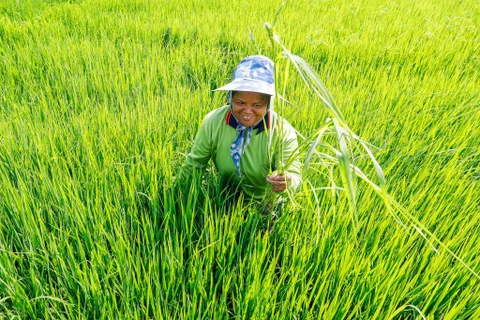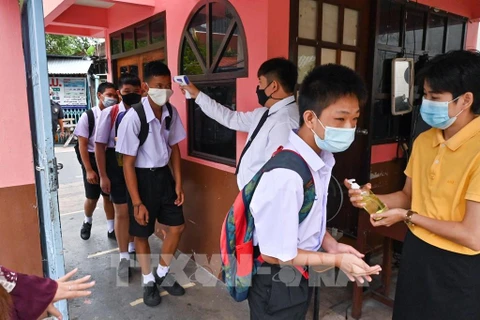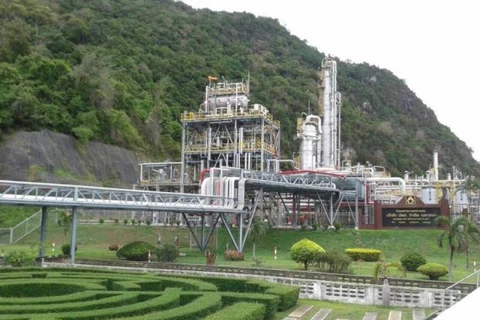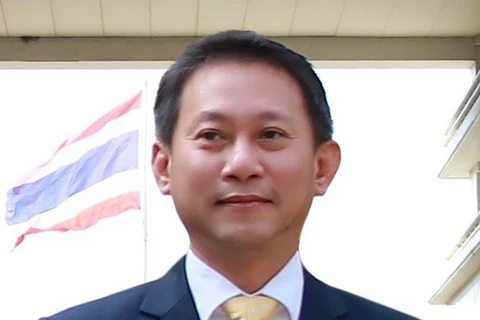Bangkok (VNA) - The Thai government is pushing ahead with the bio-economy concept to modernise agriculture with advanced technology in a move to improve the national economy, local media reported.
Bio-economy, which uses renewable resources and turns them into value-added products, is expected to help farmers better deal with unstable crop prices and convince various industries such as automotive and electronics to come up with new products.
Authorities put agriculture and biotechnology, which are at the core of a bio-economy, on the list of 12 targeted S-curve industries, covering a range of businesses from cars and smart electronics to affluent and medical and wellness tourism.
According to Alongkorn Ponlaboot, adviser to the agriculture and cooperatives minister, the S-curve initiative will be a new tool to grow the Thai economy.
“Such crops as sugar cane, cassava and rice can be developed into value-added products,” Alongkorn was quoted by the Bangkok Post newspaper as saying.
“The government is preparing biochemical projects for them," he told a webinar co-organised by the Thailand Convention and Exhibition Bureau, the Thai Chamber of Commerce and Post Today.
According to Alongkorn, Thailand has high potential for a bio-economy because it has a large agricultural base and is a major food exporter. Biochemical projects must be supported by innovations and advanced technology, with cooperation from farmers and companies.
The Industry Ministry of Thailand launched biochemical projects to upgrade crops such as cassava by turning them into pharmaceutical-grade raw materials, as well as food and feed products to serve the global market.
The Thai government plans to support biochemical projects and related research until 2026. The goal is to strengthen five sectors: bioenergy, biochemicals, food, animal feed and biopharmaceuticals.
Sugar cane and cassava are used as raw materials for many industries such as ethanol, bioplastics, food, bioenergy and biopharmaceuticals.
Alongkorn said Thailand also needs to develop and improve labour skills to serve the bio-economy scheme.
The Agriculture and Cooperatives Ministry expects the bio-economy will help Thailand escape the middle-income trap./.
Bio-economy, which uses renewable resources and turns them into value-added products, is expected to help farmers better deal with unstable crop prices and convince various industries such as automotive and electronics to come up with new products.
Authorities put agriculture and biotechnology, which are at the core of a bio-economy, on the list of 12 targeted S-curve industries, covering a range of businesses from cars and smart electronics to affluent and medical and wellness tourism.
According to Alongkorn Ponlaboot, adviser to the agriculture and cooperatives minister, the S-curve initiative will be a new tool to grow the Thai economy.
“Such crops as sugar cane, cassava and rice can be developed into value-added products,” Alongkorn was quoted by the Bangkok Post newspaper as saying.
“The government is preparing biochemical projects for them," he told a webinar co-organised by the Thailand Convention and Exhibition Bureau, the Thai Chamber of Commerce and Post Today.
According to Alongkorn, Thailand has high potential for a bio-economy because it has a large agricultural base and is a major food exporter. Biochemical projects must be supported by innovations and advanced technology, with cooperation from farmers and companies.
The Industry Ministry of Thailand launched biochemical projects to upgrade crops such as cassava by turning them into pharmaceutical-grade raw materials, as well as food and feed products to serve the global market.
The Thai government plans to support biochemical projects and related research until 2026. The goal is to strengthen five sectors: bioenergy, biochemicals, food, animal feed and biopharmaceuticals.
Sugar cane and cassava are used as raw materials for many industries such as ethanol, bioplastics, food, bioenergy and biopharmaceuticals.
Alongkorn said Thailand also needs to develop and improve labour skills to serve the bio-economy scheme.
The Agriculture and Cooperatives Ministry expects the bio-economy will help Thailand escape the middle-income trap./.
VNA
























